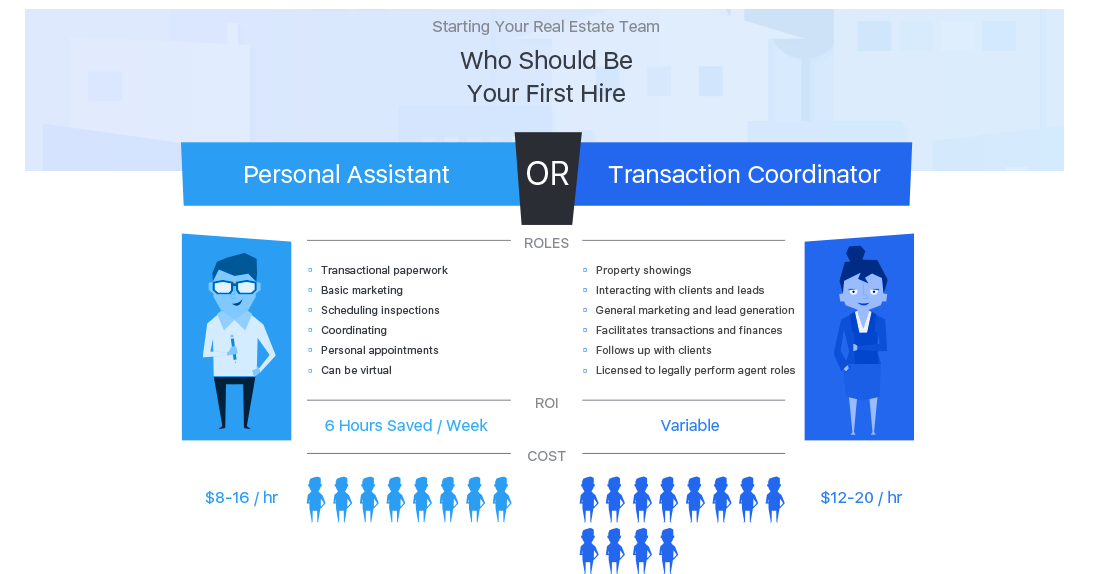Starting Your Real Estate Team: Personal Assistant or Transaction Coordinator?

Now that you’ve decided to build a real estate team to improve time management and increase your sales volume, you might be wondering who should be your first actual hire. Your first hire will often depend on your goals. If you want to focus more on the core of your business, you might consider hiring a virtual assistant. If you want someone to double your output and generate passive income, you might consider hiring a buyers agent.
However, buyers agents require administrative support. Although lead generation skills are standard among attractive candidates for the role, high-performing buyers agents should only focus on two tasks: Showing and closing. Any tasks outside their core function can impact performance. With an administrator covering key support tasks, you can focus on generating leads for your buyers agent and your buyers agent can focus on closing.
There are two roles in real estate designed to handle administrative tasks and provide support: personal assistants and transaction coordinators. However, both roles have distinct functions. Knowing the differences between each role is critical when building a real estate team.
Personal assistant. This role will remove time consuming tasks like transactional paperwork, basic marketing (including running email newsletter campaigns and creating promotional products), scheduling inspections, and even coordinating personal appointments off your plate.
Transaction coordinator. This team member doubles as a personal assistant and is the first hire any agent looking to build a team should make. Transaction coordinators are often licensed agents but do not wish to actively represent either side of the transaction. As support staff, they will help you focus on the big three: leads, leverage, and freedom.
Download the full ebook to learn more about personal assistants and transaction coordinators, including their associated costs, expected ROI, and unique advantages. You’ll also understand the benefits of running your own independent team, the right times to hire the best people, how to structure your team to succeed, and what technology and tools you need to run your team and reach the top.
